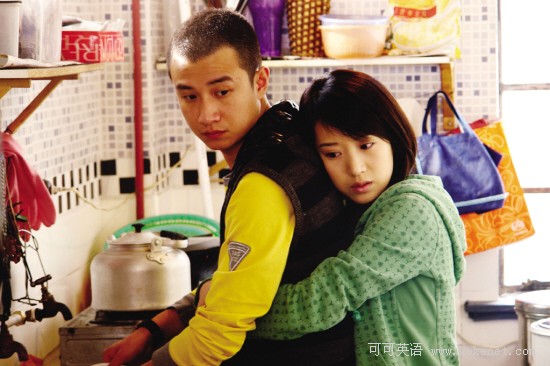(单词翻译:单击)
随着2010新年的到来,中国的80后们开始陆续步入而立之年,结婚成家成了“立”的重要物化标准之一。而最新调查显示,四成以上1980年出生的人结婚还没有着落,更多年轻的80后们则对婚姻还没有明确的计划。为何会出现这种现象?难道只是为了响应国家晚婚晚育的号召么?他们的婚姻观在新的时代中发生了什么样的变化呢?
Twenty-four-year-old Mao Wenqi is a single white-collar worker in Beijing. In his eyes, he is single not because he doesn't want to get married - it's because he can't afford an apartment.
"It doesn't occur to me to get married. I'm just beginning my career, which means my savings are little. An apartment, though it may not be a must, is nevertheless very important for family members to feel stable. I really cannot afford it."

Many young couples in big cities are just like Mao Wenqi. They may be psychologically ready to get married, but hindered by the cost of property. Those who have taken out a loan and bought their dream house are mostly strapped with monthly mortgage payments.
So how about those who are lucky enough not to have this pressure? Wang Ying, born in 1980, got married and bought her apartment before real estate prices rose. But it seems she and her husband, Gao Yuan, are not living a relaxed lifestyle, either.
Here's Gao Yuan, analyzing his family's most significant undertaking at present.
"Save money. Save money for my kid. The next generation's school education will no longer be achieved as easily as it was when I went to school. Tuition fees are now some 10,000 times higher than before."
Accompanying the problem of buying a home, young parents are also very worried about the next generation's future wellbeing. In China, the Double Income, No Kids family structure is not as acceptable as in Western countries, so the fear of feeding children becomes another obstacle for the post-80s generation.
After having a baby girl in the third year of their marriage, Wang Ying and Gaoyuan soon found that their child's education consumed much of their earnings.
Here's Wang Ying.
"We've been bringing her to various training schools since she was 3. I think the classes are mostly burdens. We're doing this blindly. But as long as other kids are learning, I want my kid to learn, too, though each class costs 200 yuan, and there are so many classes of different subjects. How can I afford it? Studying abroad will cost more. Being short of money is a big problem. But good education leads to a bright future. We know that."
Besides property costs and expensive children, careers can also be a prohibitive factor. Lai Dongying, who has been in the media industry for two years, says many of the post-'80s around her have set their careers as their priority.
"Different from the conventional idea of getting married before achieving one's career success, many of my friends insist on getting married after. They believe career success is a precondition for setting up a family."
Chen Xin echoes Lai Dongying's saying.
"At present, I still hope I can go abroad for further education. We should take advantage of being young and seize every opportunity to realize a better future, whether by pursuing a higher degree or by attaining some training classes. The final goal is to attain a dream job. I suppose no one wants to stick to one job for a lifetime anymore. We're under 30 years old. We still have a better future to fight for."
Lai Dongying believes her generation's reluctance to get married has nothing to do with love – it's actually because of their sense of responsibility.
"We grew up in relatively relaxed surroundings. So we have relatively open and free ways of thinking. As for marriage, we also hold an idealistic idea of it. We hope we can get married after we are psychologically and materially ready, instead of when people around us think we've come to the right age."


